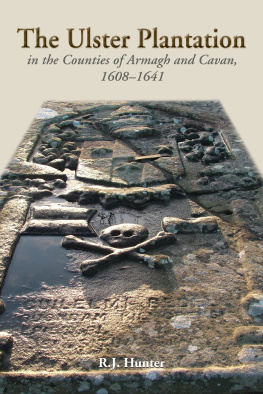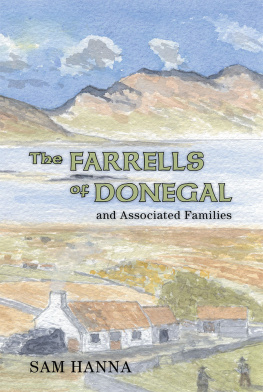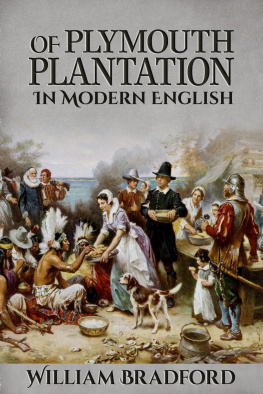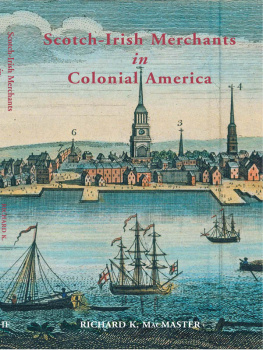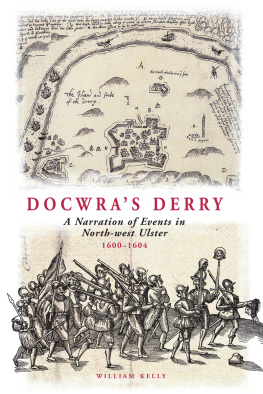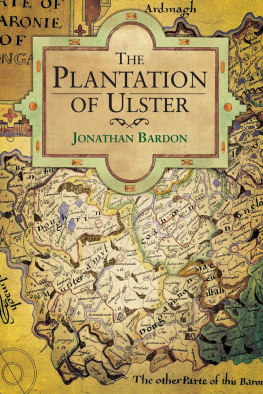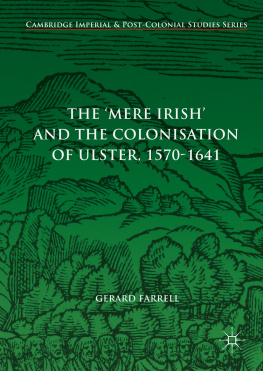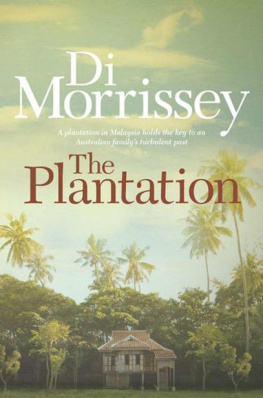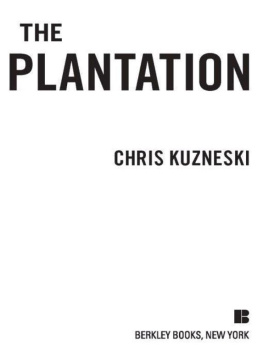Published in association with the R.J. Hunter Committee.
The Committee works to acknowledge the contribution R.J. Hunter made to the study of our past by making more widely known the results of his research, as well as giving limited support to others engaged in associated endeavours.
The Committee is grateful for the assistance of Dr. David Edwards and Dr. Margaret Curtis Clayton in producing this volume.
First published 2012
by Ulster Historical Foundation
49 Malone Road, Belfast, BT9 6RY
www.ancestryireland.com
www.booksireland.org.uk
Except as otherwise permitted under the Copyright, Designs and Patents Act 1988, this publication may only be reproduced, stored or transmitted in any form or by any means with the prior permission in writing of the publisher or, in the case of reprographic reproduction, in accordance with the terms of a licence issued by The Copyright Licensing Agency. Enquiries concerning reproduction outside those terms should be sent to the publisher.
R.J. Hunter
ISBN: 978-1-903688-96-0
DUSTJACKET
Front: Tombstone of Bishop William Bedell (d. 1642),
Kilmore, County Cavan (courtesy of William J. Roulston)
Back: The Barony of Ardmagh, 1609
(The National Archives, ref. MPF1/63)
Print manufacture by Jellyfish Print Solutions
Design by Cheah Design
TABLES AND MAPS
Tables:
Maps in plate section:
ABBREVIATIONS
| AFM | Annala rioghachta Eireann; Annals of the kingdom of Ireland by the Four Masters |
| Anal. Hib. | Analecta Hibernica |
| App. | Appendix |
| Arch. Hib. | Archivium Hibernicum |
| bars | baronies |
| BIHR | Bulletin of the Institute of Historical Research |
| BL | British Library |
| Bod. Lib. | Bodleian Library, Oxford University |
| Cal. Carew MSS | Calendar of Carew MSS preserved in the archiepiscopal library at Lambeth, 15151624, ed. J.S. Brewer & W. Bullen 6 vols, (London 186773) |
| Cal. fiants Ir. | Calendar to fiants of the reigns of Henry VIIIElizabeth |
| Chas | Charles |
| cos. | counties |
| Cott. | Cottonian |
| CPRI, Chas I | Calendar of patent and close rolls of chancery in Ireland, Charles I, years 1 to 8, ed. James Morrin (Dublin, 1864). |
| CPRI, Eliz. | Calendar of the Patent & Close Rolls of Chancery in Ireland from the 18th to the 45th of Queen Elizabeth, ed. James Morrin (Dublin 1861) |
| CPRI, Jas I | Calendar of Irish patent rolls, James I (Dublin 1830) |
| CSP Dom | Calendar of State Papers, Domestic |
| CSPI | Calendar of state papers, Ireland, 15091670, ed. H.C. Hamilton et al. (24 vols., London 18601912) |
| DKRI | Report of the Deputy Keeper of the Records, Ireland |
| d.s.p. | died without issue |
| edn. | edition |
| EHR | English Historical Review |
| fol./ff | folio/folios |
| fn. | footnote |
| IER | Irish Ecclesiastical Record |
| IHS | Irish Historical Studies |
| Inq. cancel. Hib. repert. | Inquisitionum in officio rotulorum cancellariae Hiberniae asservatarum reportorium, ii, (Ultonia), (Dublin 1829). |
| Ir. | Irish |
| Jas | James |
| JCHAS | Journal of the Cork Historical and Archaeological Society |
| jnl. | journal |
| JRSAI | Journal of the Royal Society of Antiquaries of Ireland |
| JRHAAI | Journal of the Royal Historical & Archaeological Association of Ireland |
| Lam. Pal. Lib. | Lambeth Palace Library, London |
| MS/MSS | Manuscript/Manuscripts |
| NAI | National Archives of Ireland |
| n.d. | no date |
| NLI | National Library of Ireland |
| OED | Oxford English Dictionary |
| PKIAS | Proceedings and papers of the Kilkenny and south-east of Ireland Archaeological Society |
| PRIA | Proceedings of the Royal Irish Academy |
| PRONI | Public Record Office of Northern Ireland |
| RCB Lib. | Representative Church Body Library, Dublin |
| RIA | Royal Irish Academy |
| SHR | Scottish Historical Review |
| ster/stg | sterling |
| Stud. Hib. | Studia Hibernica |
| TCD | Trinity College, Dublin |
| TNA | The National Archives, London |
| UJA | Ulster Journal of Archaeology |
FOREWORD
Once upon a time in Ireland, in the days before desktop publishing, it was relatively unusual for a dissertation even a history dissertation to be published in full book form. Thumbing through the back issues of the periodical Irish Historical Studies, which each year supplies a hand-list of Theses on Irish history completed in Irish universities, it is striking how few of the dissertations completed during the 1950s, 60s and 70s achieved much notice after their completion. Only a minority would later reappear as monographs, published by some university press or other (usually English), or a commercial publishing house (very often English). The great majority of dissertations had to settle for more limited public exposure, in the form of articles derived from the main body of the dissertation text which might be accepted for publication by a variety of national and international peer-reviewed periodicals and specialist journals. Yet even those dissertations that produced an article or two can hardly be said to have achieved their full potential. Indeed, more often than not, once published, the extracted articles were viewed by many who read them as a convenient substitute for having to consult the dissertations from which they derived. As a result, for several decades, a very large proportion of the very best scholarship on Irish history went mostly unread.
For the early modern period the non-publication of one dissertation in particular has seemed especially regrettable, R.J. Hunters The Ulster plantation in the counties of Armagh and Cavan, 16081641, completed in Trinity College, Dublin in 1969. As anyone who has attempted to teach it at third level can attest, the plantation in Ulster has long continued to be one of the most contested episodes of Irelands past. Early in my career, as a tutor in Modern History at Trinity in 19889, I found the task of teaching the plantation to be poorly served by most of the available secondary literature. Simply put, much of what had been published was unequal to the questions raised in class by bright freshman students curious about the actual mechanics of seventeenth-century colonisation and its political justification and who were mindful of the plantations lingering presence behind much more recent events. Most popular histories of the plantation era were unreflectively partisan, either pro- or anti-colonist in approach, while supposedly more balanced academic writings tended to avoid the very questions that students most often asked about the plantation scheme in order to make sense of it: Why was it done? Did it make Ireland easier to govern from Whitehall, or more difficult? How was it done? To what extent did the transfer of millions of acres that it entailed rely on the use of coercion? What sort of opposition did it face, and how easily was this overcome? Frustrated at being unable to answer the students questions satisfactorily, I raised the matter with Aidan Clarke and Ciaran Brady: it was through them that I discovered R.J. Hunters dissertation, hidden away in the stores of Trinitys library.

